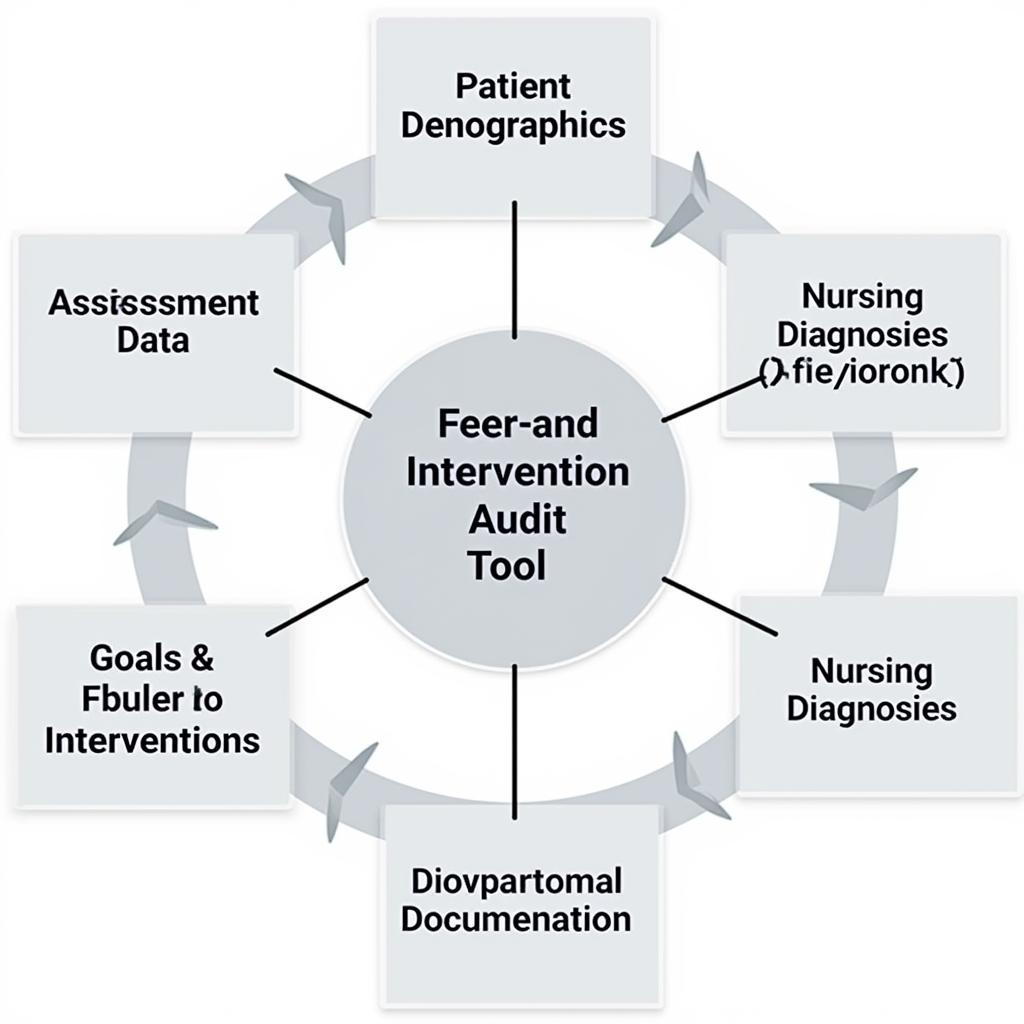A nursing care plan audit tool is essential for maintaining high standards of care and ensuring compliance with regulations. These tools help identify areas for improvement and ensure patients receive the best possible treatment. Using a comprehensive audit tool allows healthcare facilities to evaluate the effectiveness of their nursing care plans and implement necessary changes to enhance patient outcomes.
What is a Nursing Care Plan Audit Tool?
A nursing care plan audit tool is a structured instrument used to evaluate the quality and completeness of nursing care plans. It provides a framework for assessing various aspects of the care plan, including assessment data, diagnoses, goals, interventions, and evaluation. These tools can be used by nurse managers, educators, or quality improvement teams to identify areas of strength and weakness in nursing care delivery. These tools can also be incorporated into care based organizational tools for more holistic patient care.
Key Components of an Effective Nursing Care Plan Audit Tool
An effective audit tool typically includes sections for assessing the following:
- Patient demographics: Name, age, medical record number, etc.
- Assessment data: Vital signs, medical history, current medications, etc.
- Nursing diagnoses: NANDA-I approved diagnoses based on the assessment data.
- Goals/Outcomes: Measurable and achievable goals for the patient.
- Interventions: Specific nursing actions to achieve the goals.
- Evaluation: Assessment of the effectiveness of the interventions.
- Documentation: Clarity, completeness, and timeliness of documentation.
 Key Components of a Nursing Care Plan Audit Tool
Key Components of a Nursing Care Plan Audit Tool
Why are Nursing Care Plan Audit Tools Important?
Nursing care plan audits are crucial for several reasons:
- Improving Patient Outcomes: By identifying gaps and inconsistencies in care plans, audits can help improve the quality of care delivered to patients.
- Ensuring Compliance: Audits help healthcare facilities comply with regulatory requirements and accreditation standards.
- Enhancing Nurse Education: Audit findings can be used to educate nurses on best practices and areas for improvement in their documentation and care planning.
- Promoting Continuous Quality Improvement: Regular audits facilitate continuous quality improvement efforts by providing valuable data on the effectiveness of nursing care.
- Reducing Medical Errors: Thorough audits can help identify potential risks and prevent medical errors.
“A consistent audit process strengthens accountability and fosters a culture of continuous improvement within the nursing team,” says Dr. Emily Carter, RN, PhD, a leading expert in nursing education and quality improvement.
How to Conduct a Nursing Care Plan Audit
Conducting a nursing care plan audit involves a systematic approach:
- Select an appropriate audit tool: Choose a tool that aligns with the specific needs and goals of the facility.
- Determine the sample size: Decide on the number of care plans to be audited.
- Train auditors: Ensure auditors are familiar with the audit tool and the criteria for evaluation. care based organizational tools can be helpful in this process.
- Collect data: Review the selected care plans and document findings using the audit tool.
- Analyze data: Identify trends and patterns in the audit findings.
- Develop action plans: Based on the analysis, create action plans to address areas for improvement.
- Implement changes: Put the action plans into practice and monitor their effectiveness.
- Re-audit: Conduct follow-up audits to evaluate the impact of the implemented changes.
Conclusion
A nursing care plan audit tool is a vital instrument for ensuring the delivery of high-quality, compliant, and patient-centered care. By utilizing a comprehensive audit tool and implementing a systematic audit process, healthcare organizations can identify areas for improvement, enhance nurse education, and promote continuous quality improvement. This ultimately leads to better patient outcomes and a stronger, more efficient healthcare system.
FAQ
- What is the purpose of a nursing care plan audit? To evaluate the quality and completeness of nursing care plans and identify areas for improvement.
- Who conducts nursing care plan audits? Nurse managers, educators, or quality improvement teams.
- How often should nursing care plan audits be conducted? Regularly, depending on the needs of the facility.
- What are some common findings in nursing care plan audits? Incomplete documentation, lack of measurable goals, or inconsistencies between assessment data and interventions.
- How can audit findings be used to improve nursing care? To develop targeted education programs, revise policies and procedures, or implement new care strategies.
- What are some examples of nursing care plan audit tools? There are various commercially available tools, as well as facility-specific tools.
- How can technology be used in nursing care plan audits? Electronic health records (EHRs) can facilitate the audit process by providing easy access to patient data and documentation.
Common Scenarios Where a Nursing Care Plan Audit is Needed
- Accreditation surveys: Prepare for accreditation by ensuring care plans meet established standards.
- Incident investigations: Investigate patient incidents to identify potential contributing factors related to nursing care planning.
- Quality improvement projects: Use audit data to identify areas for improvement in nursing care processes.
- New policy implementation: Evaluate the effectiveness of new policies and procedures related to nursing care planning.
Further Reading and Resources
- Visit our page on care based organizational tools for more insights on improving patient care.
Need help with Car Diagnostics? Contact us via WhatsApp: +1(641)206-8880, Email: [email protected] or visit us at 910 Cedar Lane, Chicago, IL 60605, USA. We have a 24/7 customer support team.
